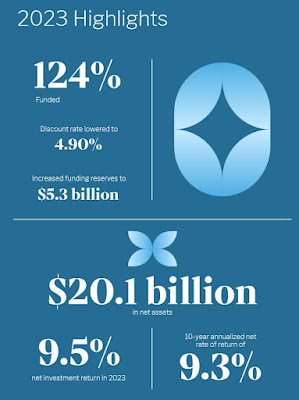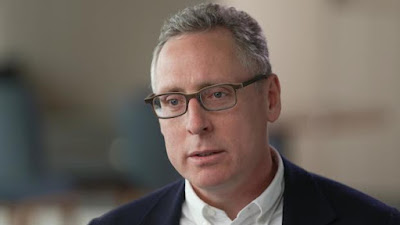CAAT Pension Plan Returns 9.5% in 2023

Benefits Canada reports CAAT returns 9.5% for 2023, led by global, emerging market equities: The Colleges of Applied Arts and Technology pension plan saw a net return of 9.5 per cent for 2023, with net assets of $20.1 billion, up from $18.2 billion in 2022, according to its latest annual report. As of Jan. 1, 2024, the investment organization maintained a healthy funding level of 124 per cent on a going-concern basis — with $1.24 set aside for every dollar promised in pensions — increasing its funding reserves to $5.3 billion. The plan saw positive returns in global equities (19.8 per cent), emerging markets equity (19 per cent), nominal bonds (7.4 per cent) and private equity (5.9 per cent). However, commodities recorded a loss (negative 6.6 per cent) during the year. In 2023, Canadian holdings made up nearly 30 per cent of the plan’s assets, including investments in equities, bonds, real estate and infrastructure. In a press release, Derek Dobson, the CAAT’s chief executi


